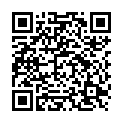|
|
|
| Module code: E1617 |
|
|
6P (6 hours per week) |
|
6 |
| Semester: 6 |
| Mandatory course: yes |
Language of instruction:
English/German |
Assessment:
project work (67%) and project documentation (5 laboratory experiments which accompany the studies) (33%)
[updated 14.07.2016]
|
E1617 (P211-0187, P211-0188) Electrical Engineering, Bachelor, ASPO 01.10.2012
, semester 6, mandatory course
|
90 class hours (= 67.5 clock hours) over a 15-week period.
The total student study time is 180 hours (equivalent to 6 ECTS credits).
There are therefore 112.5 hours available for class preparation and follow-up work and exam preparation.
|
Recommended prerequisites (modules):
E1303
E1402
[updated 14.07.2016]
|
Recommended as prerequisite for:
|
Module coordinator:
Prof. Dr. Xiaoying Wang |
Lecturer:
Prof. Dr. Albrecht Kunz
Prof. Dr. Volker Schmitt
[updated 14.07.2016]
|
Learning outcomes:
The students
-have a broad knowledge of microelectronics and telecommunications, which is complemented by the latest developments
- have learned how to simulate complex circuits and systems on the basis of practice-oriented problems by using commercially available simulation software, like e.g. Matlab and PSpice
-can process the gained simulation results graphically, to interpret and assess them, to find perfect solutions before implementing them technically
-have improved their social and communicative competence by working in a team and presenting their solutions in front of their team in the laboratory
[updated 14.07.2016]
|
Module content:
1. Introduction to the simulation technique by using the simulation tools Matlab / company MathWorks and PSpice / company OrCad
2. Analogue and digital modulation: Comparison of measurements with simulation
3. Design of HF amplifiers
4. Applications and simulations of PLL systems
5. Project work: sending and receiving of optical message signals
[updated 14.07.2016]
|
Recommended or required reading:
Best, Roland: Phase-locked Loops, Design, Simulation and Applications, McGraw-Hill, 2007 Brückner, V.: Optische Nachrichtentechnik, Grundlagen und Anwendungen, Vieweg Verlag Hayward, W. H.: Introduction to Radio Frequency Design, Amer Radio Relay League Lee, Thomas H.: The Design of CMOS Radio-Frequency Integrated Circuits, Cambridge University Press, 2003 Mandl, Mathew: Principles of Electronic Communications, Prentice-Hall Misra, Devendra K.: Radio-Frequency and Microwave Communication Circuits, Analysis and Design, Wiley, 2001 Pozar, David M.: Microwave and RF Design of Wireless Systems, John Wiley & Sons Rutledge, David B.: The Electronics of Radio, Cambridge University Press Stephens, Donald R.: Phase-Locked Loops for Wireless Communications, Kluwer Academic Publishers
[updated 14.07.2016]
|


